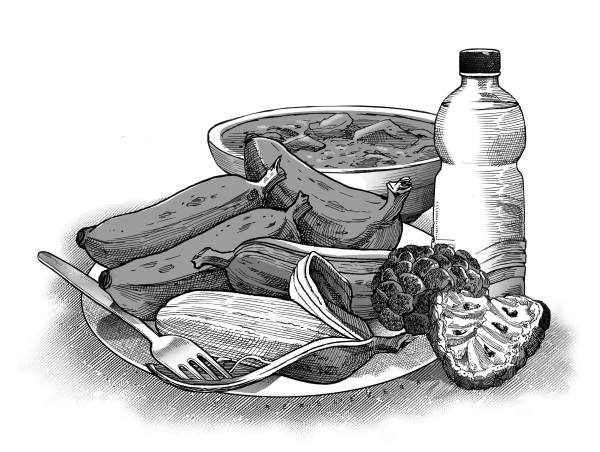
Before she called it a day, the help left boiled bananas on the table for my afternoon snack. They steamed. A quick touch with a finger confirmed that she had just cooked them.
The bananas brought to mind the morning break in grade school. When the bell rang for recess, we would rush outside the school gate to the nibbles that the vendors had laid out for us – bibingka, nilupak, palitaw, cuchinta, polvoron, siopao, ensaymada – and such fruit as guava, tamarind, santol, tambis, and, of course, boiled bananas, everyone’s favorite, which everyone, myself included, would hurry directly to.
Mother had warned me against buying just anything, a warning occasionally breached, because, from time to time, after heartily partaking of the bananas, I would in addition surprise myself with a snack I had not tried.
Not rarely I would find myself doubling up in pain, and rushing to the restroom, vowing not again to be indiscriminate in my choices.
Still, while I contemplate the steaming, boiled bananas on the table, my eyes flit between them and a bowl of fruit on a stand by the door, which brims with lanzones, guyabano, atis, apples, mangoes and oranges. I toy with the idea of not just choosing one or the other but of gobbling up as much of both as my capacity would allow, taking comfort in what Mark tells us Jesus had said to his disciples, “Don’t you understand that whatever goes into a person from outside cannot defile him? For it does not enter his heart but his stomach, and then goes out into the sewer.” And Jesus added, “What comes out of a person defiles him. For from within, out of the human heart, come evil ideas, sexual immorality, theft, murder, adultery, greed, evil, deceit, debauchery, envy, slander, pride and folly. All these evils come from within and defile a person.”
To this I find a parallel in William Blake’s poem, “A Poison Tree.” Here Blake talks about the poison that the sneaky heart concocts in secret.
I was angry with my friend:
I told my wrath, my wrath did end.
I was angry with my foe:
I told it not, my wrath did grow.
The wrath a person harbors in his heart gets a metaphor in the apple tree, which he nurtures with the fear and anguish brought about by the burden of hatred on his soul.
And I watered it in fears,
Night and morning with my tears;
And I sunned it with smiles,
And with soft deceitful wiles.
The word “deceitful” gives us a key to this stanza. Despite his tortured spirit, the man continues to appear and behave with civility to the object of his hatred, who does not suspect malice behind the graciousness.
And it grew both day and night,
Till it bore an apple bright;
And my foe beheld it shine,
And he knew that it was mine.
In the end, because treachery lurks behind the apparent good nature displayed by the secretly angry man, the object of his anger in effect finds himself stabbed in the back.
And into my garden stole,
When the night had veiled the pole:
In the morning glad I see
My foe outstretched beneath the tree.
The faithless heart offers a bowl of fruit different from that on the table. This fruit comes out of the heart, rather than enters the mouth, of a person, and defiles him or her. Of this, Jesus gave us a generic, non-exhaustive list: evil ideas, sexual immorality, theft, murder, adultery, greed, evil, deceit, debauchery, envy, slander, pride, folly.
The years would bring the children that rushed out of the school gate towards the boiled bananas and the other snacks knowledge of food other than that laid out by the vendors, fruit that they themselves would produce instead of eat. Time would give them the choice of yield – whether wholesome or poisonous.
Disclaimer: The comments uploaded on this site do not necessarily represent or reflect the views of management and owner of Cebudailynews. We reserve the right to exclude comments that we deem to be inconsistent with our editorial standards.




